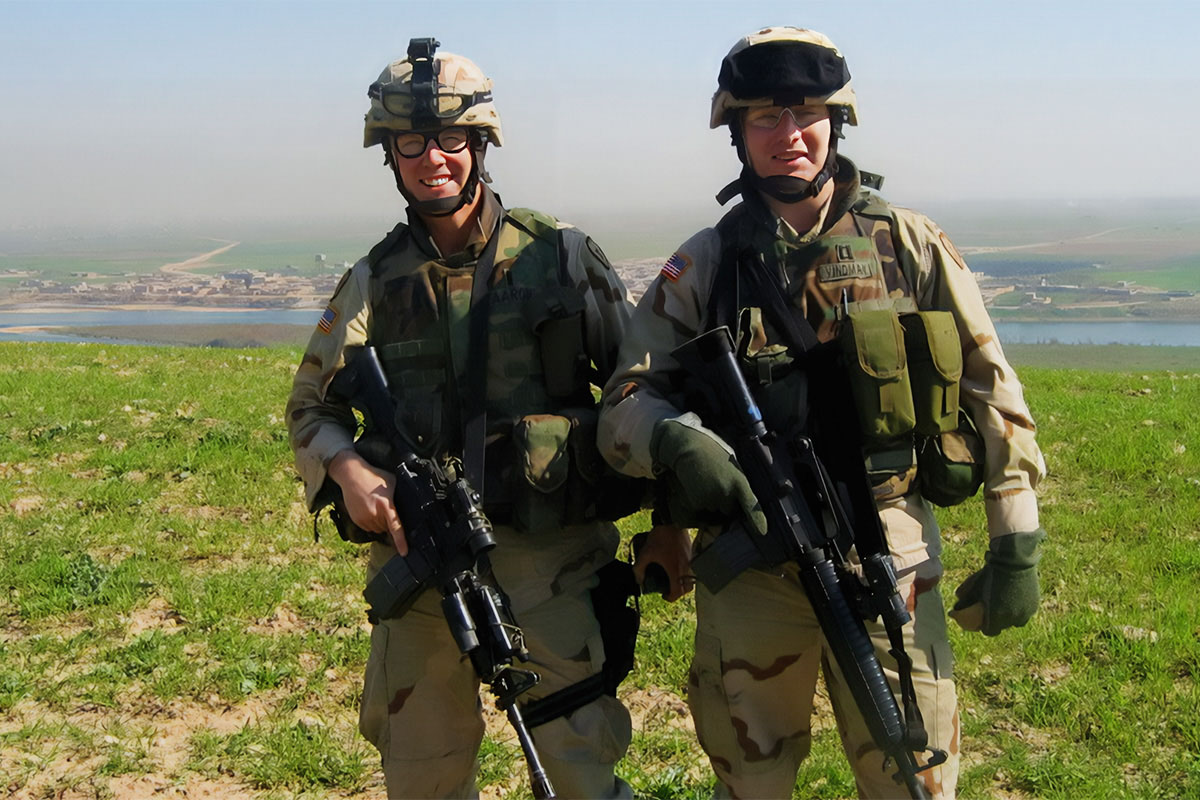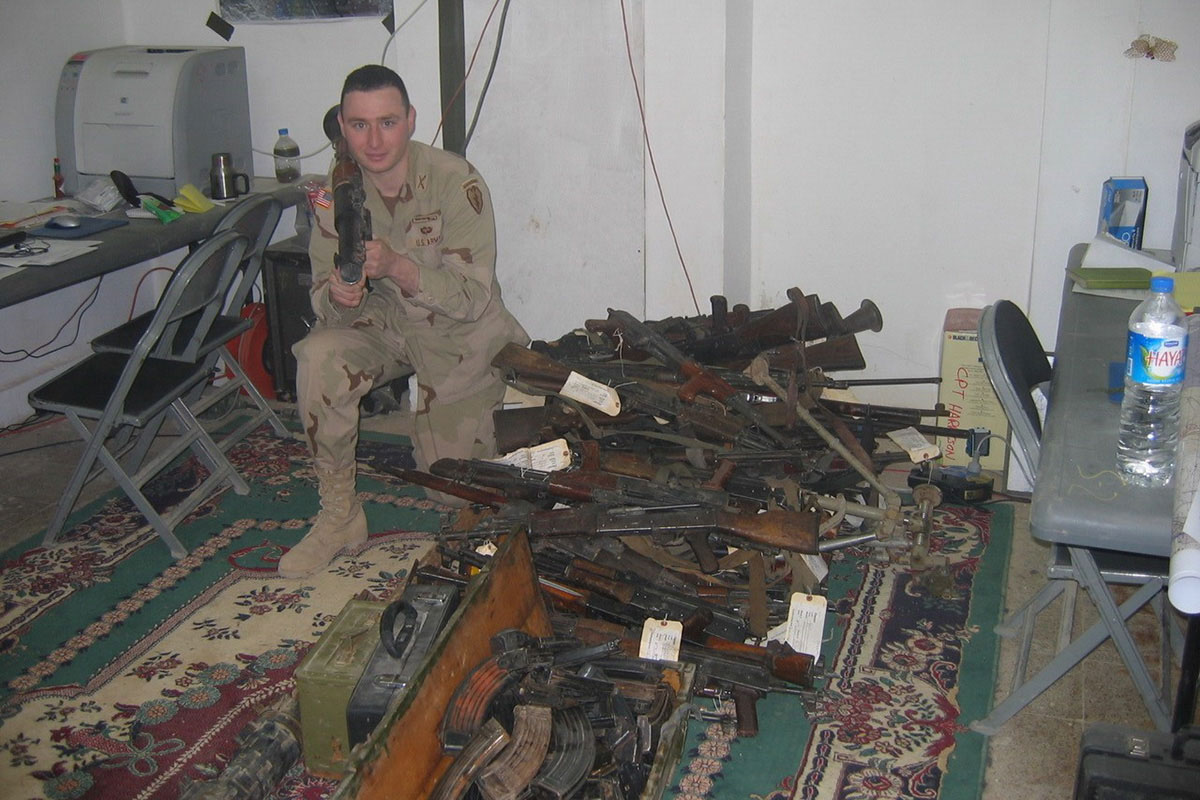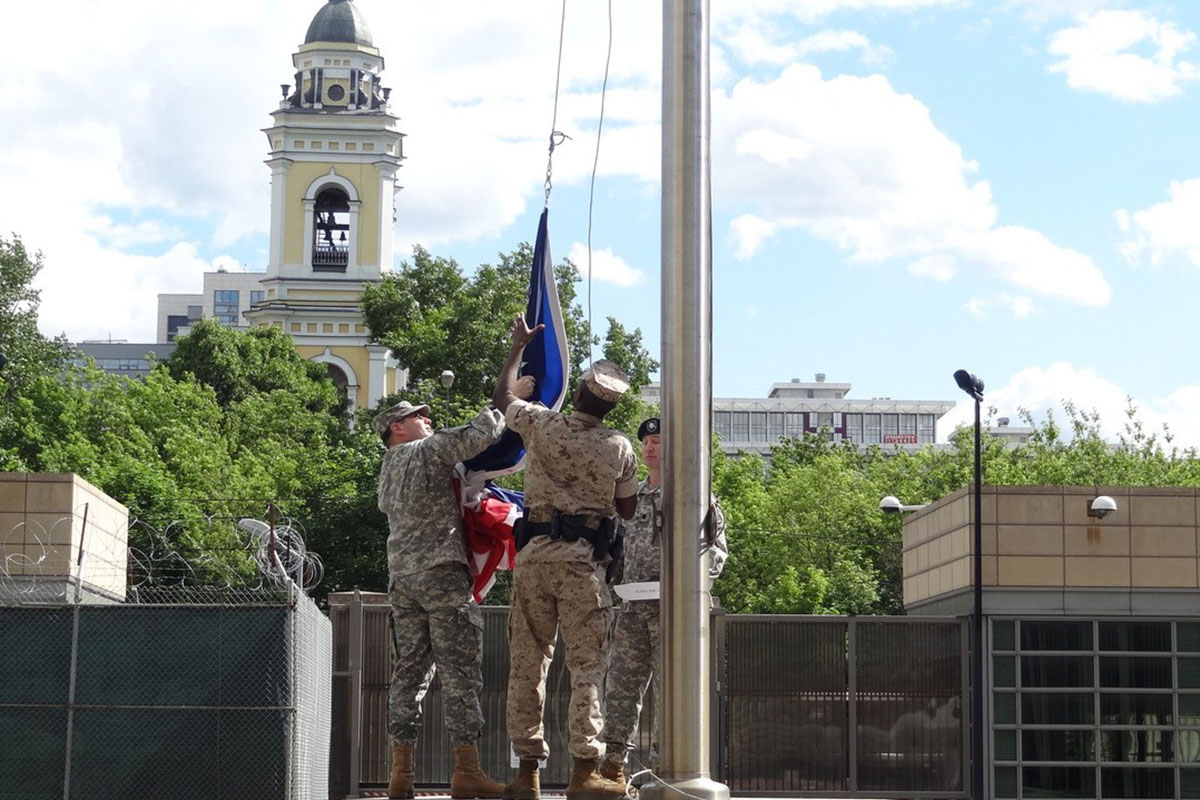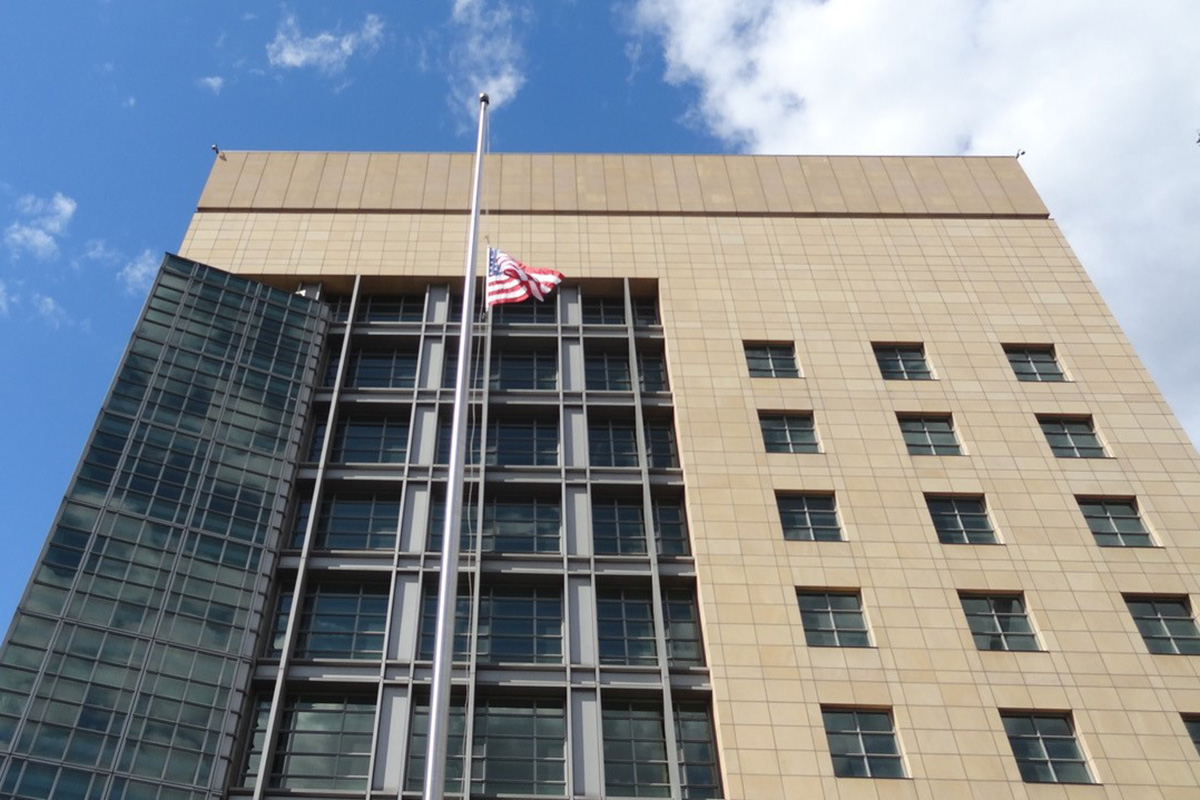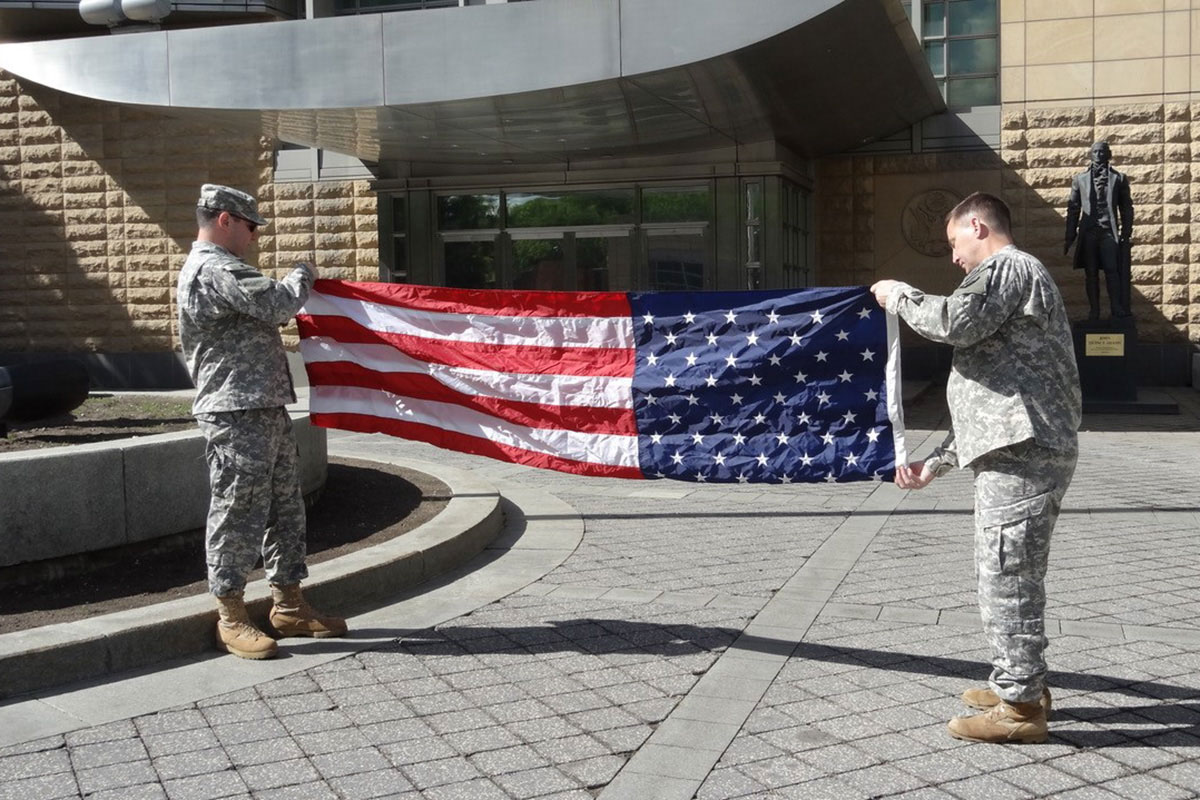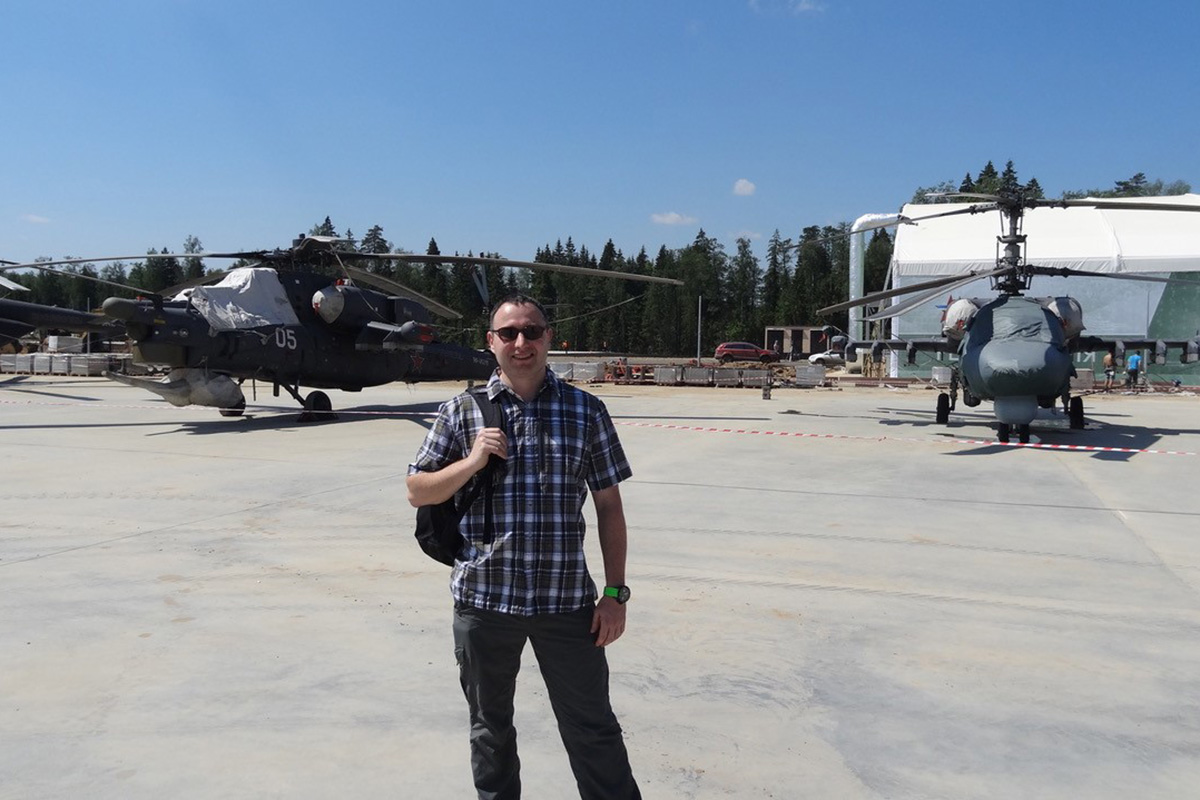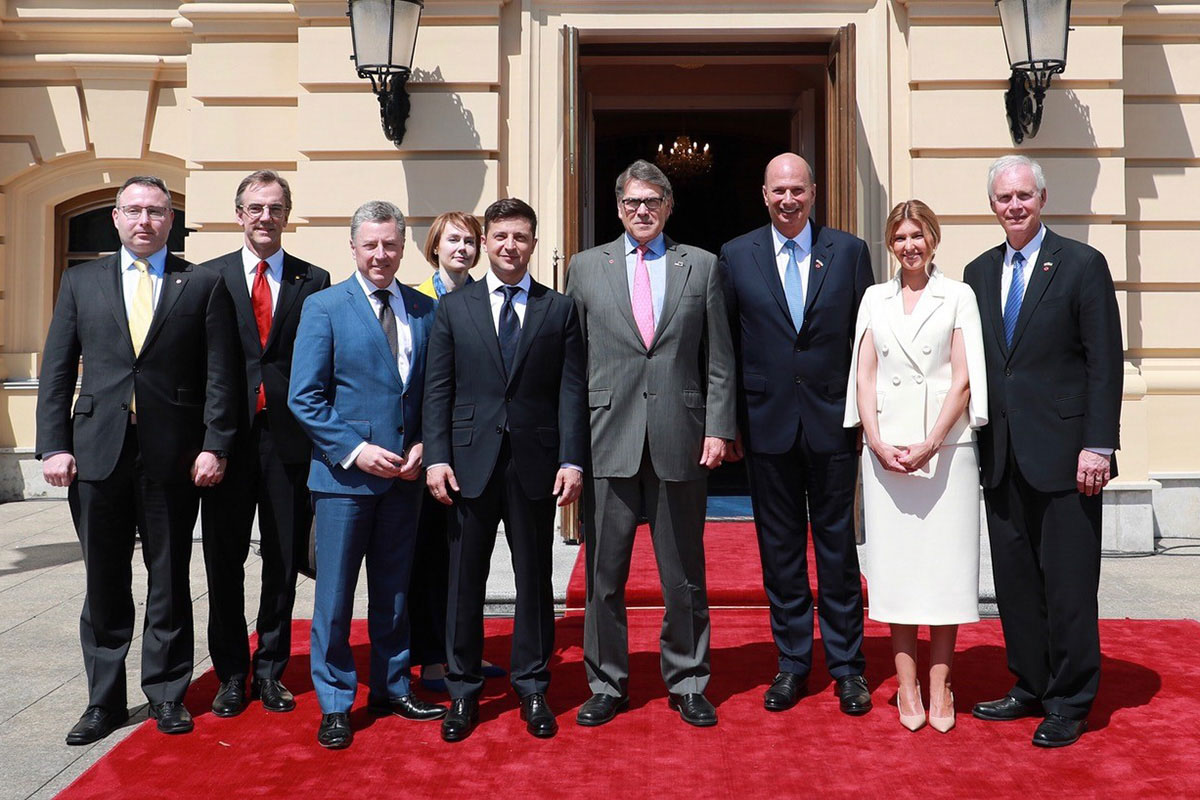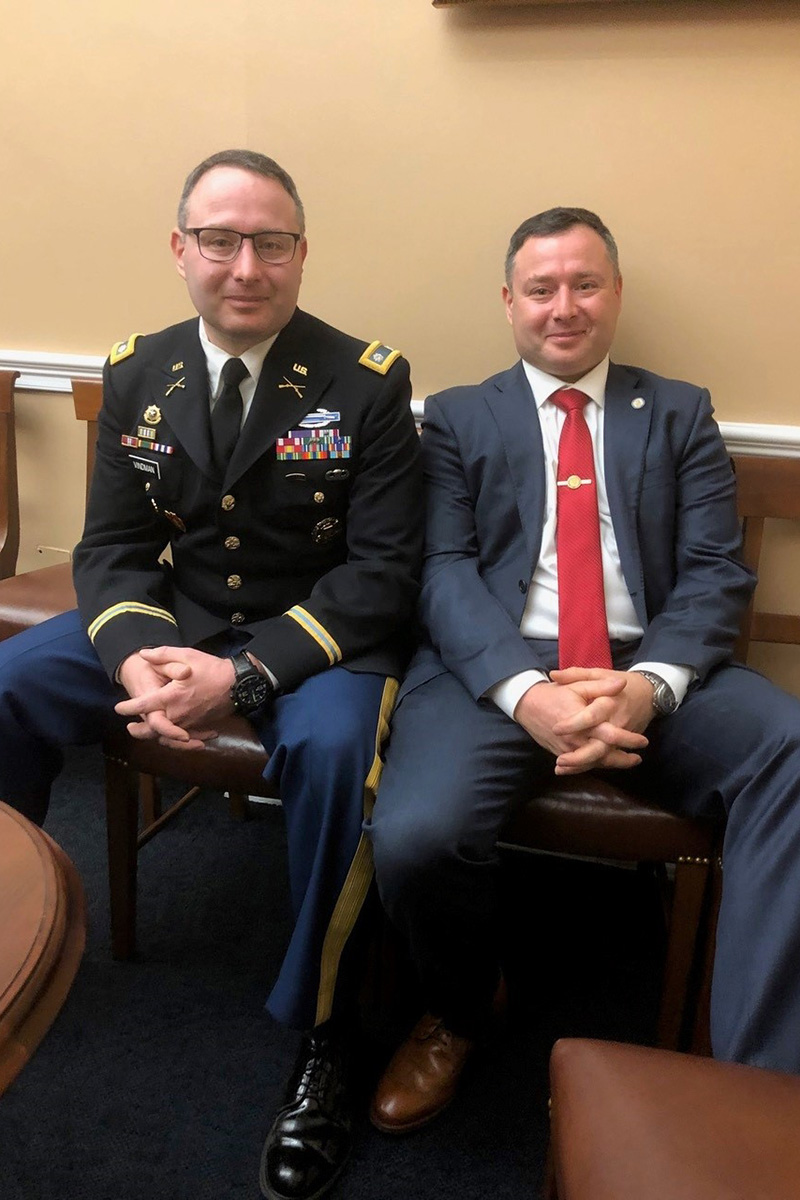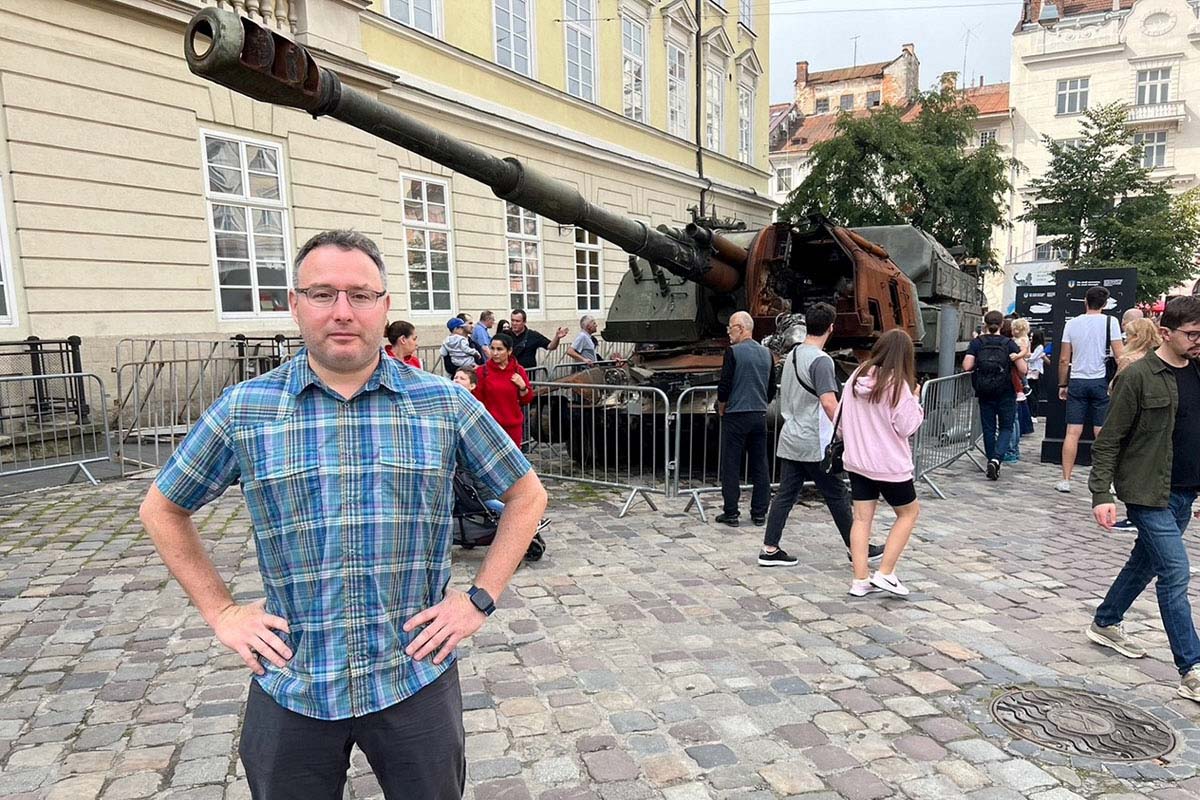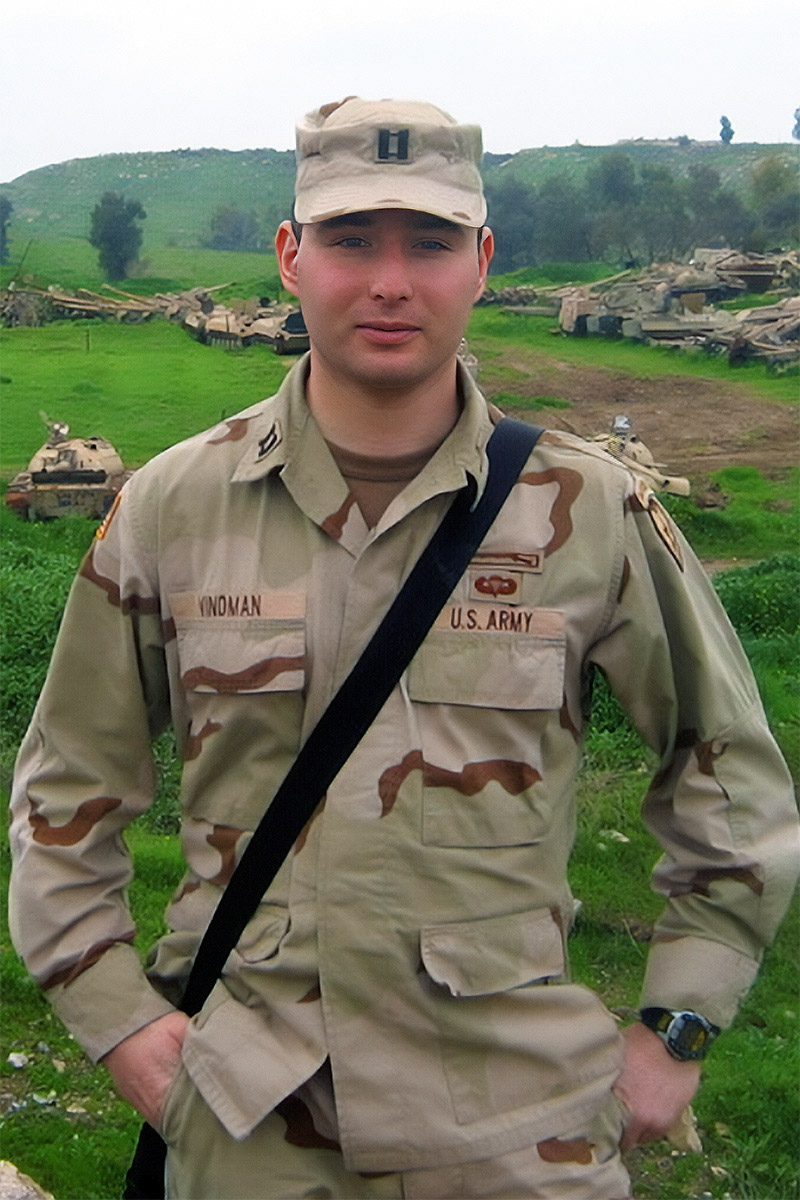
Record date:
Lieutenant Colonel Alexander S. Vindman (Ret.) Doctor of International Affairs
Call him a prophet or an expert, Lieutenant Colonel Alexander Vindman’s predictions about the war in Ukraine in April of 2022, came to be. In an illuminating interview conducted by military historian, Dr. Matthew Muehlbauer, Colonel Vindman foresaw that Russia would mobilize a massive military force and still Ukraine would take back the key city of Kherson.
Thought-provoking questions allowed Vindman to cover new ground: How does the US Army cultivate values, leadership, and risk-taking? Or, in light of the Army’s discomfort with Vindman’s decision to report the corrupt phone conversation of former President Trump with Vladimir Zelensky, the newly elected president of Ukraine in 2019, how might senior military leaders grapple with highly charged political environments? How did Vindman’s own service factor into his decision to be a whistle-blower?
Vindman found that his military service helped him develop his “values muscle.” From ‘situational awareness’ to learning how to resist interrogations as an attaché, to making difficult decisions under fire, there were no lack of difficult decisions to be made. As a young captain, there were times when he pushed back gently to senior officers, in order to do the right thing. He did not comply with their demands for harsh punishment of infractions because having been in combat with his troops, he realized that some were suffering from PTSD. As a second lieutenant, in Korea, he trusted the driver’s assessment to drive the Humvee through rough terrain, but the vehicle rolled over. Lesson learned? “Trust and verify."
Vindman advocates for strategic-level leadership that is risk tolerant and risk calibrated because risk-aversion is a recipe for a protracted war of attrition dangerous to US interests. Being hyper-sensitive exclusively to catastrophic scenarios such as the extremely low probability of nuclear war blocks practical policy ideas. One should weigh the consequence and the probability of each risk factor and also provide mitigation measures to enable policy options. It is unlikely that Russia would take military action against NATO countries. With a better risk assessment, the US could have acted sooner and broadly to provide Ukraine all of the weapons required to rapidly liberate its territory.
In addition to risk calculation, life experience is also essential. Having served in Ukraine in 2009 and 2010 and in Russia as an attaché from 2012 to 2015, he interacted with the Russian military, understood how they fight, and thus better distinguished between rhetoric and reality. Colonel Vindman accurately forecasted the war for the first year.
While he benefited from excellent military leaders, he cautions against those who manifest an unwillingness to “do the homework” or who rely on institutional politics for advancement. Similarly, generals should not be making decisions based on which president or party will be in power. He cites the example of Trump playing on this perceived vulnerability by parading General Mark Milley at Lafayette Square or by calling on the military to overturn election results. Rather one should do the right thing in the right way. At the same time, it is incumbent on each person in the military to be a responsible citizen and vote at elections rather than beg off for not wanting to be “political."
Dr. Muehlbauer asked to what degree Russia applied the so-called Gerasimov Doctrine, first articulated in 2013, to its invasion of Ukraine.The doctrine redefines interstate conflict and puts classical warfare on par with political, economic, informational, humanitarian, and other non-military activities.
Vindman’s assessment is that unlike small arms fights in Syria, Russia did not apply this doctrine in its strategic plan for Ukraine. He surmises that very few senior-level officers were involved in the planning stages and it is likely to have been driven by the political assumptions of Vladimir Putin, alone, that the Ukrainians would quickly surrender.
However, due to the vast size of Ukraine, Russians would need to withdraw and focus on a smaller area. The Ukrainians could hold in one place and counterattack in another where the Russians will not be prepared to fight. The Russians will also need to call for a draft from a population that lacks the will for this war. A protracted war concerns Vindman. The more it drags on, the more the US can be pulled into it and already there is a negative spillover in the US and NATO countries economically and in terms of informational warfare. Ukraine has the potential to win the war and so the US should support the Ukrainians as fulsomely as possible.
Some highlights of Vindman’s career were his role with the Joint Chiefs of Staff 2015-2018 and the National Security Council in 2018-2020. He deeply appreciated General Joe Dunford, Chairman of Joint Chief of Staff, who knew how to deal with Russians effectively, as well as Commander of CENTCOM [US Central Command] General Frank McKenzie. In spite of his rank as lieutenant colonel, Colonel Vindman authored the Russia component of the national military strategy as well as to the trans-regional, multi-functional, multi-domain global campaign plan for Russia.
Vindman notes that staying focused is key to working well at any level, operational, tactical, and strategic. He credits the military for having helped him cultivate this characteristic. He also advises understanding the objectives of one’s bosses boss to get the ‘big picture’ which facilitates the search for alternative solutions.
Ultimately, Vindman affirms a life of service:
“I can take a deep sense of pride in the military as a profession and what it does, its fundamental role is to defend the nation. [It] breeds very honorable, selfless public servants that is prepared to risk their lives for a higher calling.”
Vindman is currently a Pritzker Military Fellow at the Lawfare Institute, and the author of the memoir, Here, Right Matters PMML members can view programs, in which Vindman discusses the Ukrainian War:











